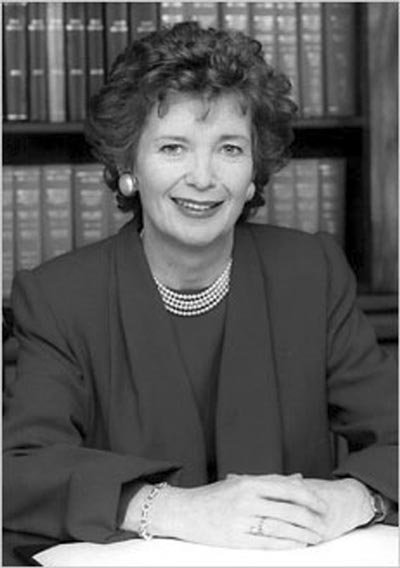Born: May 21, 1944, Ballina, County Mayo, Ireland

Mary Robinson is an Irish lawyer and politician, president of Ireland (1990-1997). The first woman to serve as Irish president, Robinson worked to transform the largely ceremonial office into a platform from which to campaign for peace, social reforms, and environmental causes.
She was born Mary Bourke in Ballina, County Mayo, the daughter of two Catholic physicians. She was educated privately before going to Trinity College, Dublin, where she earned a law degree in 1967. She then continued her legal studies at Harvard University, where she was influenced by the civil rights movement and radical student protests of the period in the United States. Returning to Ireland, Robinson became a professor of constitutional law and was elected to the Senate in 1969 at the age of 25. She married a fellow lawyer, a Protestant, against the wishes of her family.
From the early 1970s, in her roles both as a lawyer and politician, Robinson campaigned for civil liberties in Ireland, especially for women’s rights. In parliament and in the courts, she won the right for women to sit on juries, to be taxed independently of their husbands, and to receive equal social-welfare payments. She also successfully advocated the decriminalization of homosexuality and the rights of children born outside marriage, and sought to liberalize Ireland’s laws on divorce and abortion.
Robinson continued to serve in the Senate until 1989, but ran unsuccessfully in 1977 and 1981 for a seat in the lower house of parliament. A member of the Irish Labour Party, she left the party in 1985 over its support for the Anglo-Irish Agreement which she argued did not recognize the rights of Protestants in Northern Ireland. Although she was not a party member yet the Irish Labour Party nominated her in 1990 as its presidential candidate. Given her radical reputation and the minority status of left-wing parties in Ireland, she was considered extremely unlikely to win. But the leading candidate, Brian Lenihan, became involved in a scandal during the campaign and failed to win a majority of the vote in the three-way race. Under Irish election law, Robinson won the race with votes from third-party supporters.
Robinson became not only the first woman to hold the office of president, but also the first successful candidate from outside the two major political parties, Fianna Fáil and Fine Gael. She pledged to represent a new Ireland that was more tolerant and inclusive and to use her office to campaign for change. To many, her election reflected an accelerating transformation of Ireland from conservative, Catholic values to a more secular, pluralist, and modern state. In September 1997, Robinson resigned to become the United Nations High Commissioner for Human Rights.
